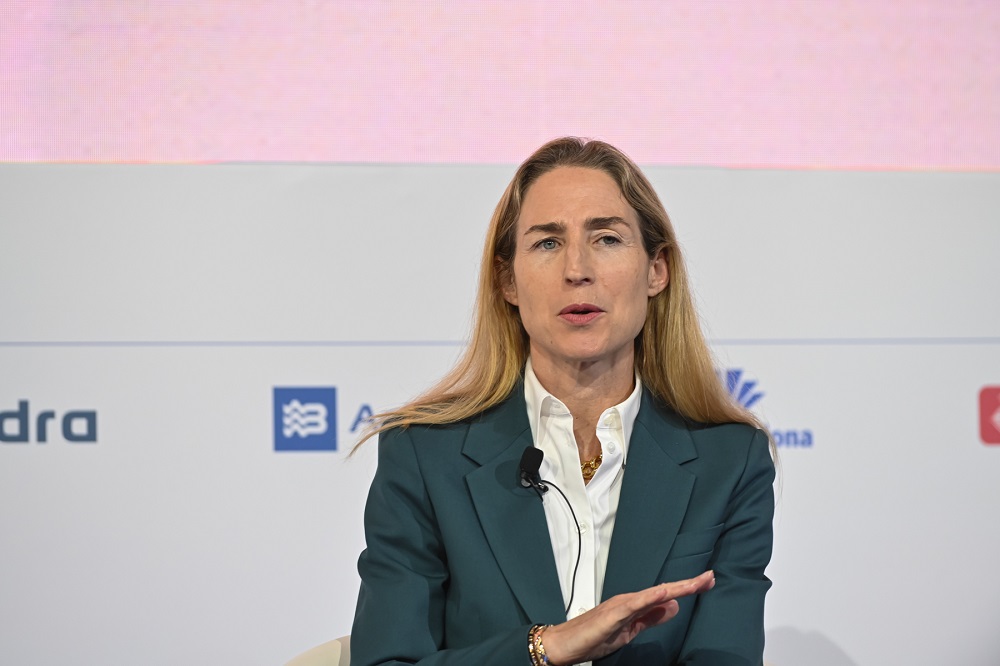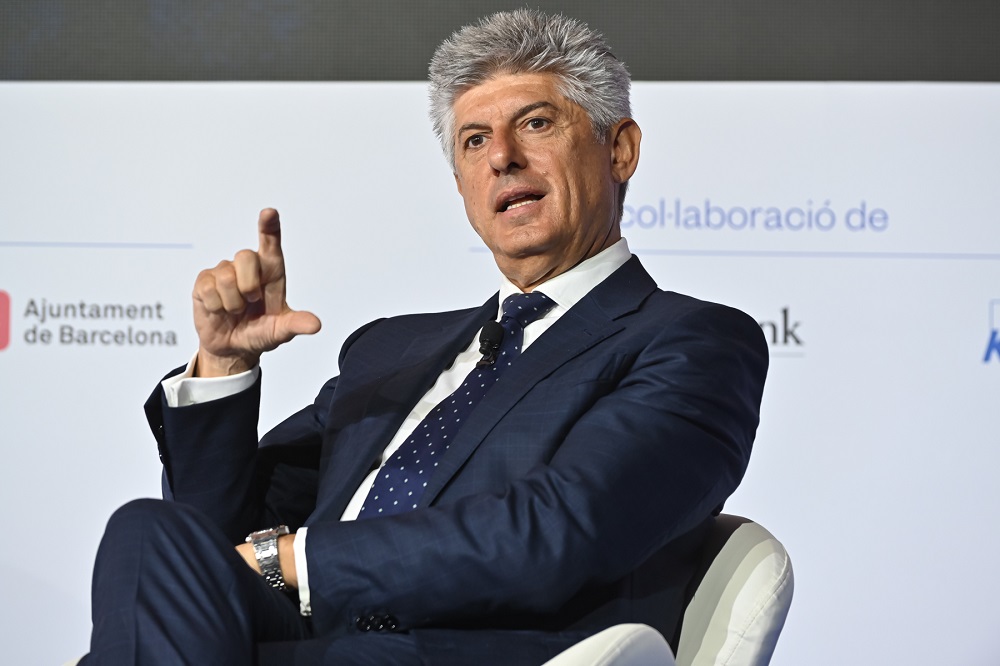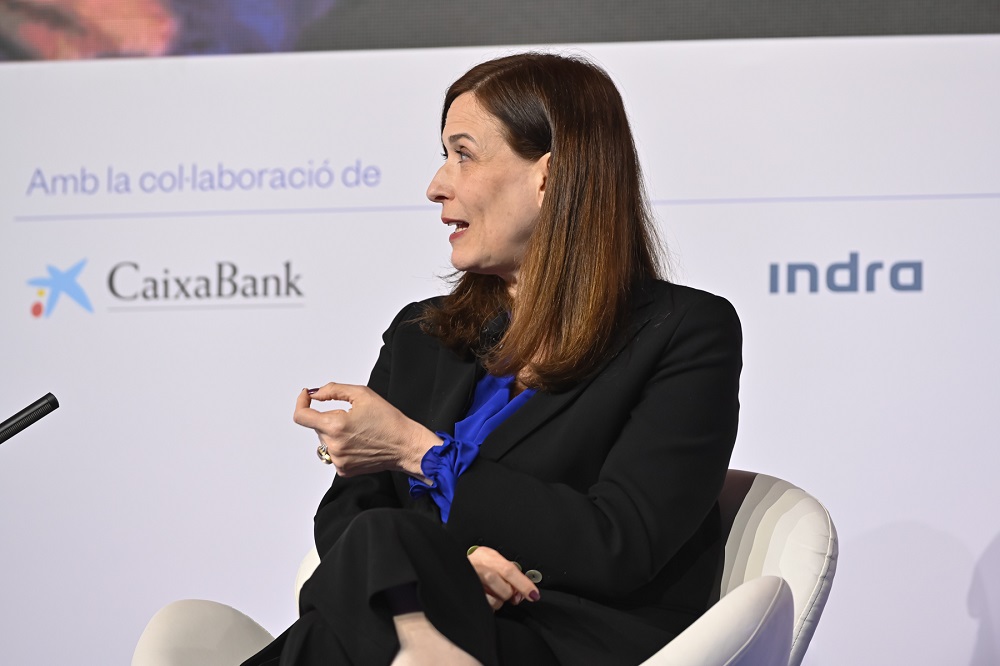Carmina Ganyet, member of the Board of Directors of Cercle d'Economia, put on the table that sustainability is a "key test" for the 21st century that must be achieved by ensuring industrial competitiveness. From this premise, the current model and the challenges towards a fair and pragmatic transition were analysed, which sets the goal of neutrality of polluting emissions by 2050, although current scenarios and future commitments by governments are not compatible with the achievement of the goal. In short, it was concluded that the transition process must be accelerated without damaging business productivity and addressing the costs and challenges associated with the goal.

Alison Martin, CEO EMEA, Bank Distribution and Global Head of Sustainability at Zurich Group and an expert in climate risks, underlined the complexity of managing these risks – for society and for business leaders – and mentioned a study of 650 global sustainability experts that shows that more than half of executives need support to measure and manage them. He specified that climate risk is classified into three categories (physical, transition and litigation): the physical is evident in extreme events such as heat waves, floods and storms, which have caused significant economic damage: "Last year the cost of these extreme weather events was about 300,000 million dollars", which fall on companies, governments and society.
As for transition risk, it refers to the costs associated with adapting to new regulations and changes in business models and directly affects economic stability. Litigation risk is also complex: changes in the global landscape, social acceptance, and legal lawsuits have increased and presented risks to both those who act and those who do not. "A growing phenomenon, which will continue to increase," Martin predicted.
To address the challenges, she suggested the use of long-term scenario planning and the adoption of models such as NGFS, which help assess the potential impacts of an increasingly hot world or a disorderly transition. And he emphasized the importance of resilience, "not only in financial terms, but also in critical infrastructure and supply chains."
As an example of collaborative efforts, he mentioned a pilot in Madrid to assess how heat affects vulnerable populations and which engineering solutions can be implemented. Martin pointed to collective action: "We have to solve these risks collectively, as business leaders, as a community, as local governments, and globally."

Social, environmental and governance components
For his part, Cellnex CEO Marco Patuano spoke about sustainability-related investments at Cellnex and the difficulty of addressing ESG (environmental, social and governance) criteria. The company has committed to being 100% green by the end of 2025, despite its higher cost: "Energy consumption must be reduced through technology, given that digital equipment works 24 hours a day," he said. Constant energy consumption presents challenges, as the "minimum energy is equal to 92% of total consumption" and although solar panels can be used to self-produce energy during the day, it is not possible to completely go off the grid due to the need for continuous service and resilience, he argued.
He also addressed the challenge of the Digital Divide in rural areas: "An SME in an area that does not have digital services is dead. Strategic plans must consider the digital divide and offer these services, although economically it is difficult". Regarding gender diversity, he said that the company, dominated by engineers, seeks to improve gender balance in the STEM sector, especially in southern European countries, where the imbalance is more pronounced.

Aviation, in the spotlight
Transport (especially aviation, responsible for between 2% and 3% of global emissions) is in the spotlight for sustainability. Carolina Martinoli, CEO of Vueling, underlined the economic, social and human value of aviation and highlighted that Vueling and the parent group (IAG) have committed to reaching net-zero emissions by 2050 and to using 10% sustainable aviation fuels (SAF) by 2030, exceeding the European mandate of 6%. For Martinoli, the process of decarbonising aviation is possible: it requires time, investment and collaboration, but it presents "significant opportunities". A study commissioned by Vueling and Iberia with Price Waterhouse states that the SAF industry in Spain could contribute 58,000 million euros to GDP and generate 270,000 new jobs.
But what are the risks associated with the transition and what regulation can make it accelerate or implement it in a more pragmatic way? The experts agreed that the transition to a low-carbon economy is a complex process that "requires multi-stakeholder collaboration, clear policies and efficient regulation". Companies must adapt to changing consumer expectations and "avoid deceptive practices" to be competitive and meet sustainability goals.
On incentives to scale up SAF production, Carolina Martinoli compared the approaches of Europe and the United States: the former focuses on mandates that signal future demand, the United States has implemented tax incentives that accelerate its production. "The risk is that we, who do have mandates, end up being importers," he warned, highlighting the economic opportunity that SAF offers to Spain and Catalonia. Alison Martin (Zurich Group) highlighted the need for a coherent industrial policy in Europe, like that of the US and China, with subsidies: "The necessary innovation must be incentivised at the necessary speed". And Marco Patuano (Cellnex) considered that Europe must create a large-scale strategic plan and criticised its propensity to regulate before developing technology: "A more pragmatic and results-oriented approach must be adopted," he suggested.
The three speakers agreed that the energy transition requires a combination of technological solutions, appropriate incentives and international collaboration to seize economic opportunities and address environmental challenges effectively.